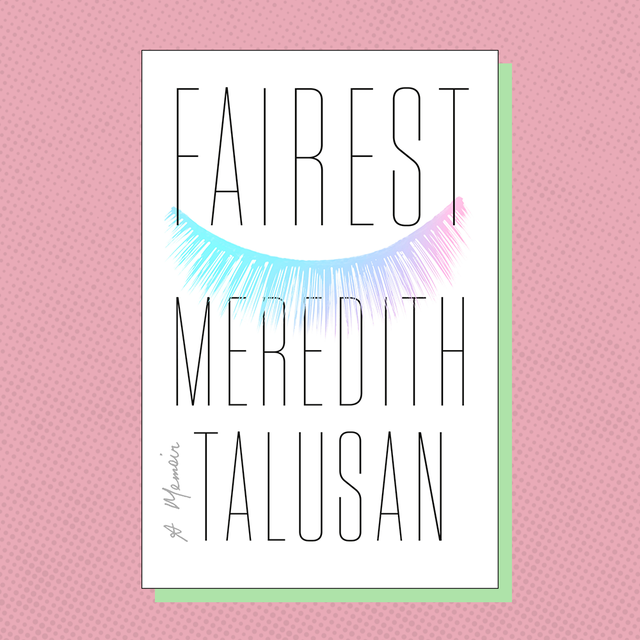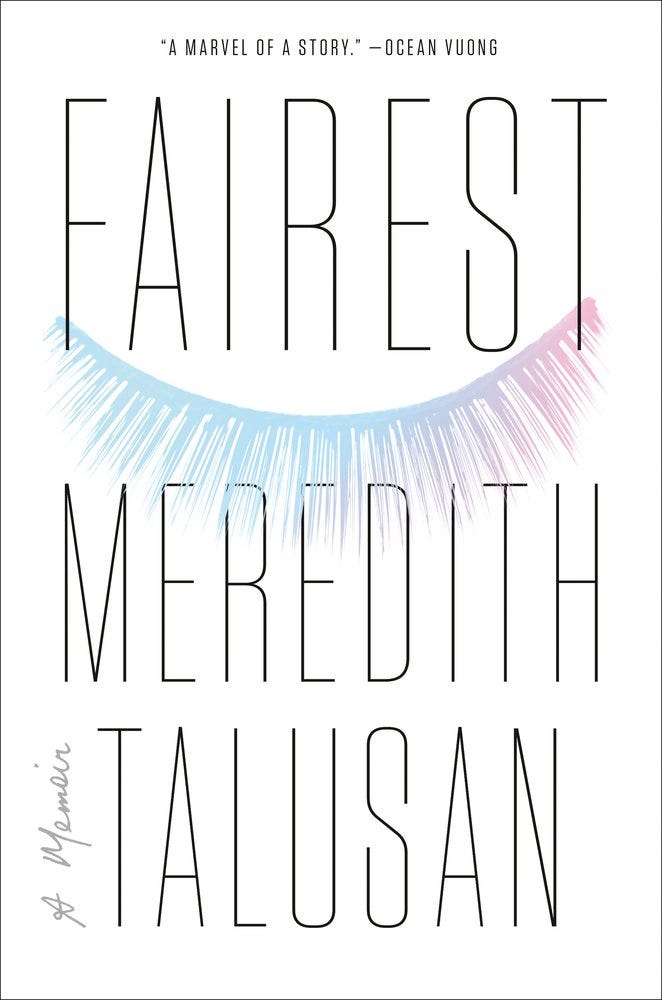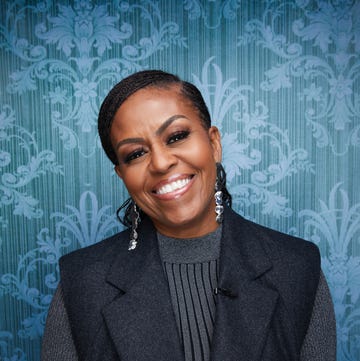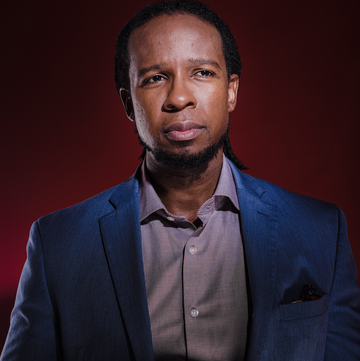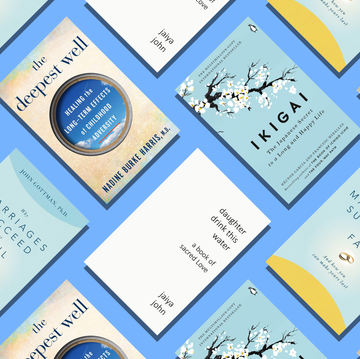Meredith Talusan is one of the most stellar essayists writing today, and one of the very best at examining the many different meanings of transition. In her debut memoir, Fairest, the artist-activist charts her family's immigration from the Philippines and how she later, as a student at Harvard, came to break the bounds of the gender binary.
Fairest is also very much a story that is about the power of stories, and in this excerpt, Talusan examines how a library can be a safe space for queer immigrants, "a psychic haven that exists for the exploration of ideas."
There are good reasons why libraries are such places of refuge for both queer people and immigrants. When queer folks face rejection from our families, communities, and religious faiths, the library provides relief not only as a physical place that won’t kick us out for being ourselves, but also as a psychic haven that exists for the exploration of ideas, even ones that our families and communities find unacceptable. When immigrants want to learn about America without being exposed to the biased judgment of the native-born, we also find relief in books, and the library is the one place where we can partake of their knowledge for free, since so many of us arrive in this country with so little.
As a young queer immigrant who came to the United States from the Philippines at fifteen, I not only feared rejection from my family and Catholic Church for being queer, but my peers ostracized me for speaking with a strange accent and wearing cheap, ugly clothes.
Even after I managed to perform American competence and get a scholarship to Harvard three years later—competence that I gained in large part from reading books—I was still too poor and new to the country to belong, trapped between the sophisticated world I miraculously found myself in and the rural life I left behind, far less rich yet reassuringly familiar. In college, the library was the only space on campus where I didn't feel lonely or inadequate, among books that gave me solace because I possessed the agency to pick the ones that didn’t judge me harshly just for being who I am.
I returned to Harvard to speak at a panel in March 2018, more than two decades after I graduated. Though I’d spoken at a number of universities, it did feel significant, but also amusing, that my alma mater had finally invited me back. I was such a troublemaker in college, a self‑branded queer radical who got removed from protests and threatened with arrest for public indecency.
I decided to come to Harvard Yard a few hours before my talk, not quite spring, too cold to walk around without a coat, the trees still barren. I came through the side entrance facing Massachusetts Hall, on a Friday afternoon in the middle of the semester, and encountered the usual sprinkling of human figures, a couple of students with expressions of grave attention, tourists taking pictures in front of the bronze John Harvard statue. I had the overwhelming feeling of being out of place as I passed that monument and came to the other side of the Yard, the part I had traversed hundreds, maybe even thousands of times before, from my dorm at Wigglesworth in the very corner of that vast lawn, toward my various classes where I also felt out of place.
Back then, it was the typical alienation of being a poor, immigrant college student in the world’s richest school, but over time, it turned into feeling alienated from the person Harvard wanted to make of me, someone who was supposed to think freely so that I could be groundbreaking and innovative, yet also conform to whatever arbitrary standard the university decided I should meet. Harvard reminded me of a fickle father who encouraged you to break the rules, except you were never allowed to undermine his authority.
Yet speaking at Harvard was a final, grudging admission that the institution I fought with for so long was also one that gave me the tools to be the person I ultimately wanted to be, someone who made an impact in the world while remaining true to the parts of myself I cherished, which I managed not to give up even though Harvard tried to discipline them away. But now, accepting how I’d grown into a person that both I and Harvard approved of also made it harder to grapple with the struggle it took to get to that place, as if feeling even a modicum of satisfaction betrayed the part of me that suffered for so long.
In that agitated state, there was only one place that could ease my mind. I felt pathetic as I scaled those three dozen concrete steps up to the entrance of Widener Library, but it really was the building on campus where I felt most safe. When I entered through the gilt‑and‑glass doors to that building’s lobby, encased in marble with a row of pillars on each side, the opulence no longer intimidated me, knowing how this part of the building was for donors and tourists, while the best part was what the public didn’t see.
The guard at the entrance directed me to the privileges office, through a door near the back corner of that vast room. A grayhaired, pink‑skinned man with metal‑rimmed glasses, light blue shirt, brown tie, sage green cable sweater, and a dour expression—the very image of a stodgy librarian—met me when I got to the wood‑paneled counter, and I told him I was an alum who wanted to visit the stacks. He asked for identification, and I handed him my passport: blue, American.
The man shifted to a row of brown hardbound books on a shelf beside him, pulled one out, and shifted back toward me as he glanced down at my passport and thumbed through the pages.
“You’ll find me under ‘Marc,’” I said. “I was a boy in college, but I became a girl.”
“Fair enough,” he replied without taking his eye off the book.
He found my name, wrote down my information on a bright yellow card, and then handed it to me. “Show this to the guard.”
I proceeded to the circulation desk, showed the monitor my pass, and saw the gray door before me like it was a portal. I turned the spherical metal knob and went in.
Sudden silence, the smell of old paper, the same low ceiling I could reach with a decent jump, the same feeling of comfort, of something like home. Even the mute echo of footsteps felt the same as I wandered down the gray marble floors, one remnant of opulence from the other side of the door, the other that this building housed the largest university collection in the world.
I spied a set of narrow stairs that led down and took those down four flights to the Dante section on level D. From there I found the tunnel to the library annex and section HQ, where all the LGBT books were—it figured the university would consign them to another building—and laughed to myself over the undergrad joke that HQ meant Harvard Queer.
Eventually, I found myself back on the first floor, whose stacks were most familiar because they housed the English literature section. Like I often did when I felt agitated in college, I picked a row randomly from among the few hundred on that floor, turned on the light switch, and meandered among the shelves to find a book I might like. On this particular afternoon, I found myself in the R section and turned my head sideways to peruse the titles, brushing the books I scanned with a finger.
When I reached Salman Rushdie, I was surprised to find Joseph Anton: A Memoir among the books there. I had no idea he’d written a memoir. And not just any memoir, but one about being exiled from his own country. I sat on the cold marble, my back against the gray metal shelf, and started to read. That too was like college, and even before that; no matter how upset I was, or how scared, I somehow always managed to find the right book.
From FAIREST by Meredith Talusan, published by Viking, an imprint of Penguin Publishing Group, a division of Penguin Random House, LLC. Copyright © 2020 by Meredith Talusan.
For more ways to live your best life plus all things Oprah, sign up for our newsletter!
Michelle Hart is the Assistant Books Editor of O, the Oprah Magazine. Other writing of hers has appeared on the Millions, the Rumpus, and the New Yorker. Her fiction has appeared in Joyland and Electric Literature. She has been awarded a fiction fellowship by the New York State Writers Institute and was once profiled in her hometown newspaper for being in the process of writing a novel--a novel she is still in the process of writing.
